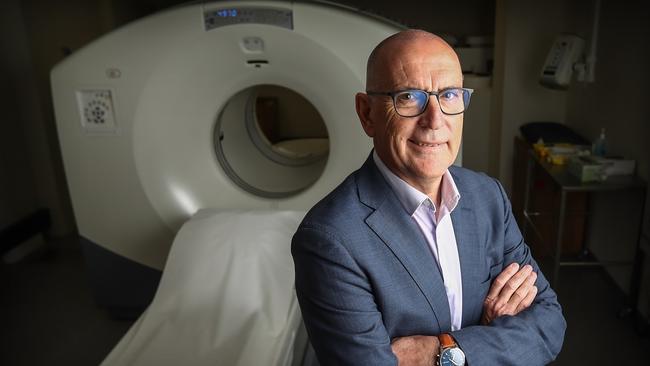CSIRO deal powers new cancer treatments
Australian cancer patients are closer to new treatment options thanks to a $5.1 million partnership.

Australian cancer patients are a step closer to accessing highly targeted new treatment options after the signing of a new $5.1 million research partnership between the CSIRO and cancer care provider GenesisCare.
The partnership, which is based on an emerging area of science called theranostics, aims to develop new therapies for some of the most difficult-to-treat cancers, such as brain, pancreatic, ovarian and metastatic cancers.
Theranostic cancer treatment is a type of precision medicine that finds and attacks individual cancer cells in a person’s body, rather than attacking both cancerous and healthy cells.
Associate Professor Peter O'Brien, chief medical officer at GenesisCare, said the partnership aimed to accelerate the process of bringing findings from the lab to the clinic for hard-to-treat cancers.
“There has been incredible progress in improving outcomes for many tumour groups.
“However, there’s been very little change in mortality rates for some complex cancers like brain and pancreatic cancer over the past 35 years,” he said.
Mr O’Brien said the CSIRO’s work in identifying potential new targets across a broad range of cancer types was a good example of how government and private funding was helping to improve outcomes for patients in the longer term.
“Australia has a very good track record in terms of outcomes of patients with cancer but also a great track record in clinical and innovative research in oncology — this is a good example of that innovation,” he said.
CSIRO project lead Professor Stephen Rose said that by using theranostics, which combines molecular-level diagnostics and therapy, the project aimed to discover cancer cells’ unique signatures, and then design special molecules to find and attach themselves to those cells. “These molecules can then show us exactly where the cancer is located in the body and deliver radiation directly to the cancer cells,” he said.
Treatments successfully designed in the project would be trialled in Australia through GenesisCare’s clinical network.
“We have been developing these small molecules for a number of years for different cancers and this partnership allows us to combine our forces and have a developmental and translational pathway from the bench to bedside,” he said.
Mr Rose added that the partnership with a domestic company meant the technology stayed in Australia and that local patients could benefit from early access to these new therapies through clinical trials.
GenesisCare already offers theranostics treatment in NSW, Western Australia and Queensland, with plans to introduce the treatment to more centres in 2019.
The groups are hoping the $5.1m investment could also help spark a new theranostics industry in Australia to ultimately improve patient outcomes.
“Radiotherapy, chemotherapy and surgery have long been the three core pillars of cancer treatment, and in years to come theranostics could be another major weapon in our fight against cancer, alongside other emerging treatments like immunotherapy,” Mr O'Brien said.
Mr Rose said one of the aims of the CSIRO was developing companies and creating new industries in Australia in this area of precision medicine, once some of the new therapies were developed and the IP protected.


